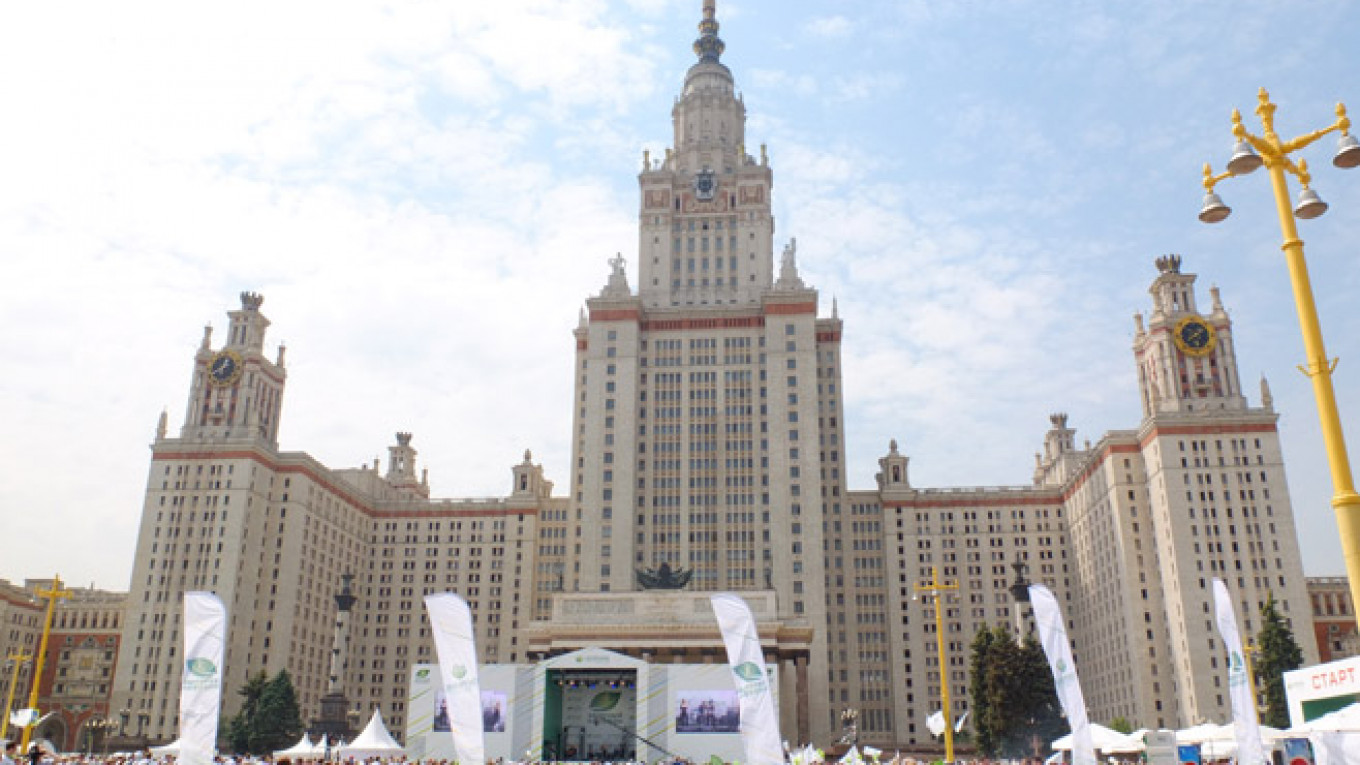A Russian university education can come very cheap. For example, a student working toward a biology degree and paying full tuition at a state university must pay only 16,500 rubles ($484) per year, and an economics student only 27,000 rubles ($791) annually. Thus, a four-year degree costs a budding biologist only $2,000 and a newly-minted economist just a little more than $3,000. Probably no other developed country in the world has comparable prices.
Which Russian institutions of higher learning offer such prices? For one, the Russian State Agrarian Correspondence University, or RGAZU. The campus is located in Balashikha, just outside Moscow, and boasts more than 9,000 students — an enormous number when considering that Moscow State University, one of Russia's largest universities, has 38,150 students.
Now consider a few statistics concerning RGAZU, an institution that I confess I had never even heard of until recently. In my opinion, these figures perfectly illustrate the condition of Russia's system of higher education.
Of the university's 9,000 total students, 4,300 receive full scholarships based on their academic performance, while the remaining 4,700 — more than half of the student body — pay tuition fees ranging from $500 to $1,200 annually. It is particularly noteworthy that in this agricultural university fully 3,500 students are actually working toward degrees in philosophy, economics, public administration, commerce and management.
That means that 40 percent of the student body is majoring in fields that have no more connection with agriculture than do higher mathematics or philology.
And here is another interesting fact: 280 students will graduate with degrees in Information Technology. But who will hire an IT specialist with a degree from an agrarian correspondence institute? Will such a diploma increase their future salaries?
Their professors aren't making much money themselves. The institute employs more than 800 staff who earned an average of 17,144 rubles ($502) per month in 2012. With salaries that low, the professors could not afford to obtain a degree at their own institute, despite its low tuition fees.
Does RGAZU need 3,500 students of management and economics? Should the state support its philosophy department and pay its employees poverty-level wages?
Alas, I think not. In 2012 the state allocated $11 million to RGAZU, with 208 million rubles going toward operational expenses and 150 million rubles toward campus construction. I feel bad for the students, the instructors and for all of that money wasted.
You might wonder why I single out this particular institute for criticism. The answer is simple: it typifies all of Russia's nonstandard institutions of higher learning with its poverty-level wages and meaningless departments that have no connection to the institute's stated specialty, with its thousands of students studying economics and management and with the government subsidizing it all.
The country needs agronomists, steelworkers and teachers, meaning that institutions training students in those professions should continue operating. The problem is that Russia lacks the brainpower and the willpower to implement the well-considered and radical reforms its system of higher education so urgently requires.
Andrei Panov is an independent commentator. This comment originally appeared in Vedomosti.
A Message from The Moscow Times:
Dear readers,
We are facing unprecedented challenges. Russia's Prosecutor General's Office has designated The Moscow Times as an "undesirable" organization, criminalizing our work and putting our staff at risk of prosecution. This follows our earlier unjust labeling as a "foreign agent."
These actions are direct attempts to silence independent journalism in Russia. The authorities claim our work "discredits the decisions of the Russian leadership." We see things differently: we strive to provide accurate, unbiased reporting on Russia.
We, the journalists of The Moscow Times, refuse to be silenced. But to continue our work, we need your help.
Your support, no matter how small, makes a world of difference. If you can, please support us monthly starting from just $2. It's quick to set up, and every contribution makes a significant impact.
By supporting The Moscow Times, you're defending open, independent journalism in the face of repression. Thank you for standing with us.
Remind me later.






